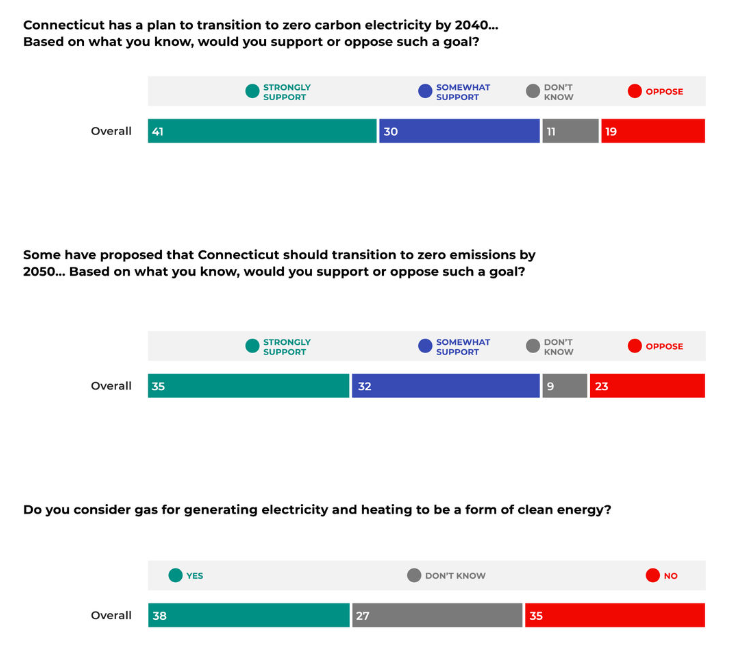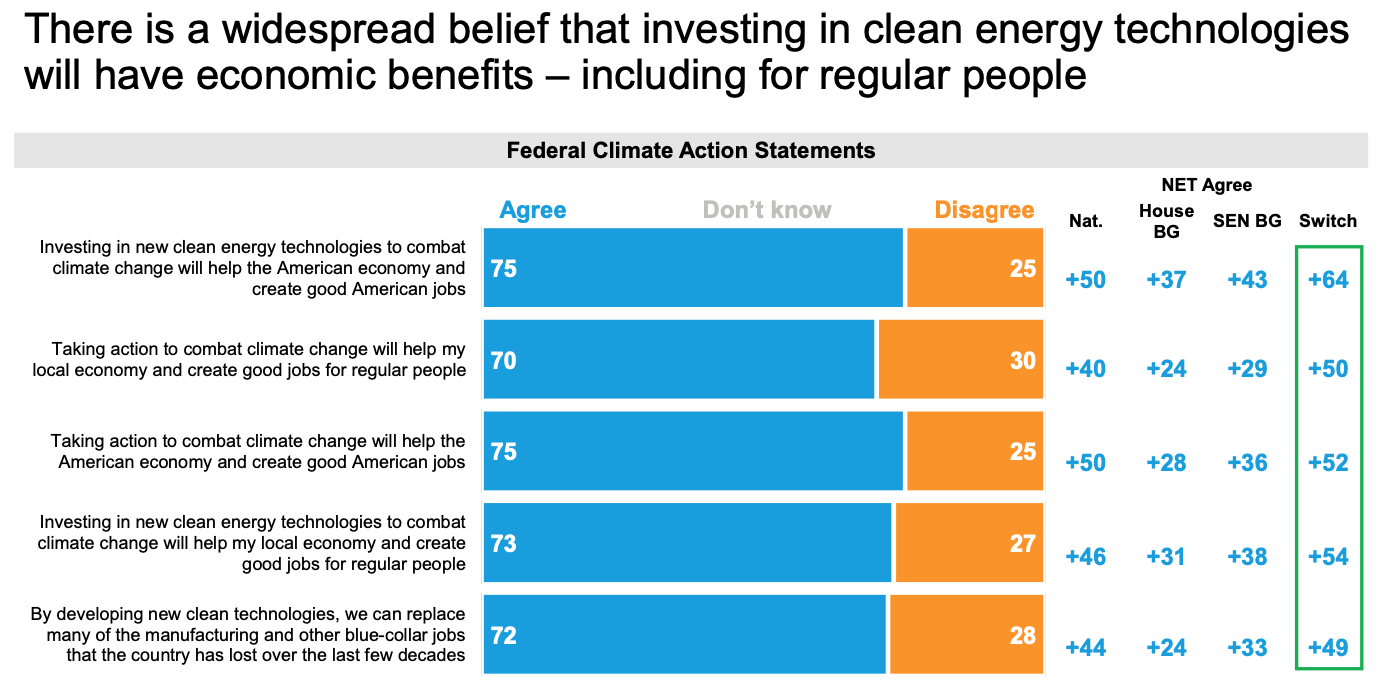Resources
Search below for resources covering the intersection of climate engagement, social science and data analytics.
RESULTS
Green Dash Northeast
Green Dash Northeast is a free tool that displays state-level data related to emissions and energy in the Northeast. This tool may be useful for staff at environmental NGOs, state and local governments, and community-based organizations seeking to better understand the status of climate and energy initiatives throughout the region. Green Dash Northeast aggregates publicly available data to present useful emissions and energy-related metrics. Metrics are displayed consistently for all Northeastern states, which allows for meaningful comparisons between states and additive regional values. Categories of data include: greenhouse gas emissions, electric energy, energy efficiency, non-electric fuels, battery storage, clean energy jobs, energy burdens and rates.
Poll: Connecticut Voters are Ready for Bold Action on Climate and Clean Energy
A poll of 600 registered voters across Connecticut revealed a number of helpful data points about current voter attitudes towards clean energy and fossil fuels including:
Poll: Investing in American Clean Energy to Build the Industries of the Future
Key findings of a survey (phone and online) of US voters, with oversamples in key states include:
- Voters across the political spectrum overwhelmingly support government investments in clean energy technologies in order to rebuild the economy (77%), create good jobs (76%), and eliminate the carbon emissions that cause climate change (75%).
- There's a widespread belief (75%) that investing in clean energy technologies will have economic benefits – including for "regular people."
- And also that by developing new clean technologies, we can replace many of the manufacturing and other blue-collar jobs that the country has lost over the last few decades (72%)
- Strong support for various approaches to boost and develop specific clean energy technologies such as clean steel and cement, clean jet fuels, and energy storage and transmission.
- Voters support investing $75 billion in clean energy tech RD&D as part of the upcoming infrastructure bill.
Solar with Justice
Under-resourced communities face a disproportionate share of societal burdens and lack access to many of the benefits other communities enjoy. Participation in the solar economy can help ease these burdens and provide low-and middle-income households with economic relief.


